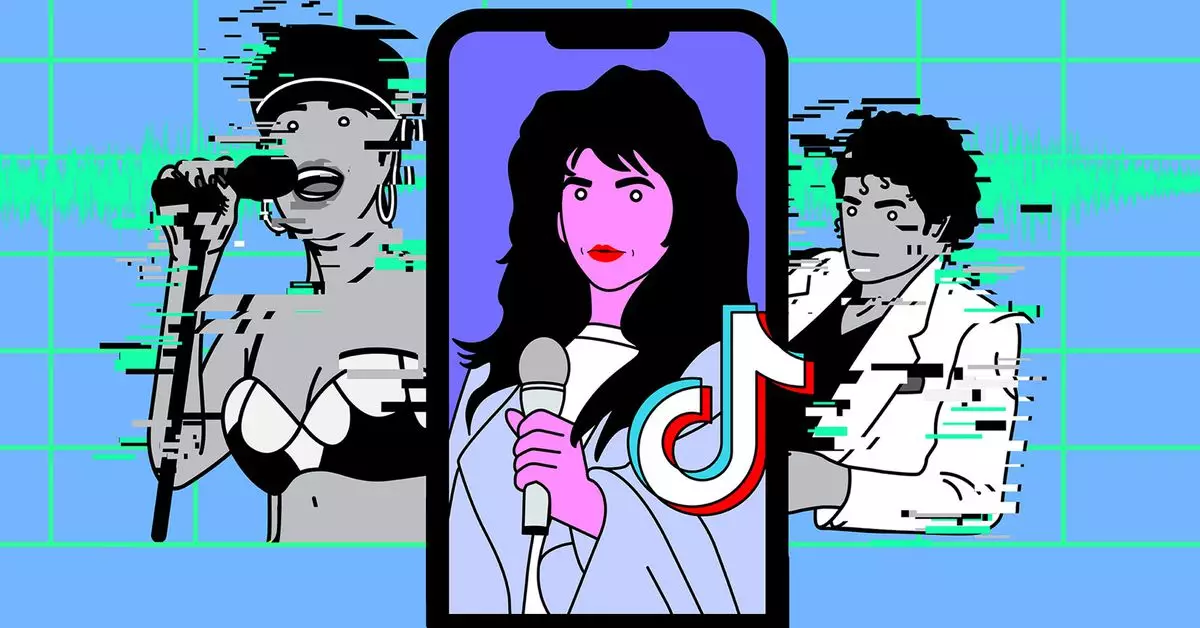In an age dominated by digital content and fleeting online trends, Jack Coyne’s game show “Track Star” emerges as a refreshing spin on traditional music trivia. Set in the vibrant atmosphere of New York City, the premise is straightforward yet engaging: participants, ranging from everyday citizens to high-profile celebrities, don headphones, listen to snippets of music, and attempt to guess the title or artist. This innovative format not only entertains but also fosters a sense of community, bridging gaps between audiences and creators.
“Hear it, Guess it, Win it!” – that’s the mantra of “Track Star.” As Coyne engages participants, he embodies the essence of a modern-day host who understands the delicate balance of maintaining a fun atmosphere while also honoring the intricacies of music culture. This simple yet effective dynamic captivates viewers, allowing them to relate to celebrities and public figures as they grapple with the same challenges and joys of music recognition.
“Track Star” is a product of continuous evolution. Initially conceptualized as “Public Opinion,” the show’s format was heavily inspired by the public’s growing interest in trivia and competition. Coyne, along with his creative team, meticulously crafted the structure and rhythm of the show, ensuring that it flowed with an engaging pace while capturing the essence of spontaneity that a live game requires.
Interestingly, as the show gained traction, the inclusion of prominent figures such as Ed Sheeran and Kamala Harris was an unexpected yet welcome development. Coyne admits that this influx of star power did not fundamentally alter the show’s core foundation, a testament to its versatility and appeal. The format allowed “Track Star” to expand its reach without losing its identity, paving the way for diverse audiences to connect through the universal language of music.
At its core, “Track Star” serves as a reflection of today’s music climate, where nostalgia and novelty coexist. The show’s success is rooted in its accessibility. Whether it’s an iconic hit from the past or the latest chart-topper, the diverse musical selections ensure that conversations spring up, trends are dissected, and memories are revisited among participants and viewers alike.
Moreover, Coyne’s charisma and ability to engage with diverse guests adds depth to each episode. The show becomes not just a game but a platform for storytelling – revealing how music intertwines with personal and collective experiences. In an era where content can often feel repetitive, “Track Star” stands out by infusing trivia with genuine interaction.
Looking ahead, Coyne envisions significant expansions for “Track Star,” indicating that there is still ample room for creativity and innovation. In a media landscape saturated with music-related content, the show positions itself as a breath of fresh air where conversation meets competition in an accessible format. Coyne sees opportunities for enhancing its digital presence, potentially creating interactive experiences that engage a broader audience.
Ultimately, “Track Star” thrives by being more than just a trivia game; it captures the evolving narrative of music and culture itself. With joyous guessing games and meaningful conversations, it provides a space for music lovers to engage, laugh, and reminisce. The show’s journey and development reflect a broader trend in entertainment, showcasing the power of music as a connective thread in our lives.

